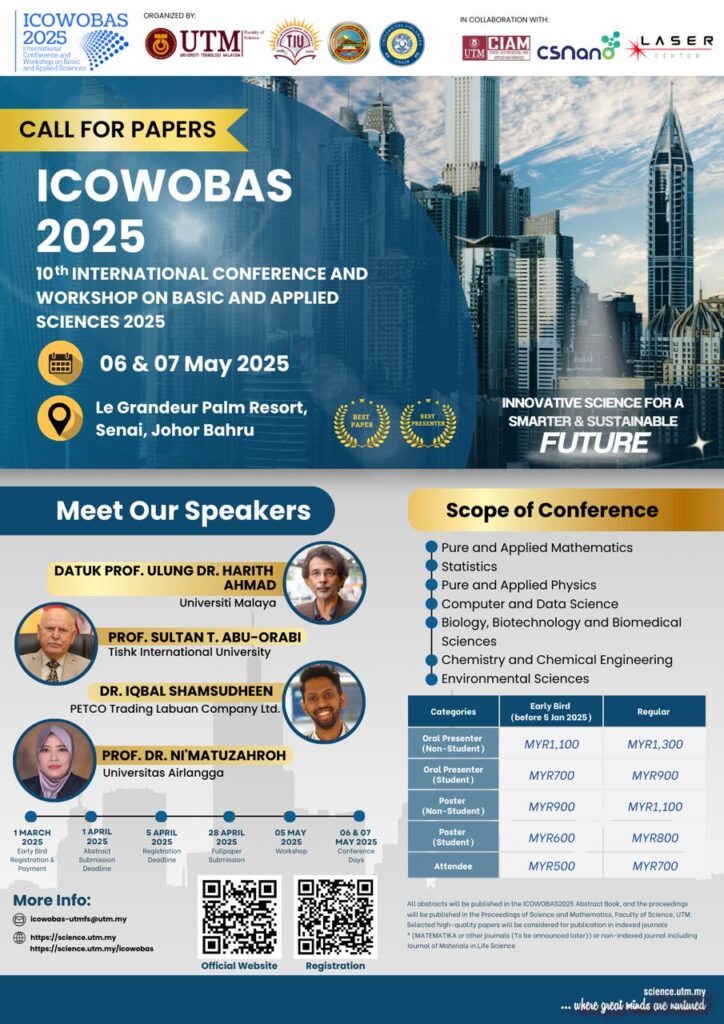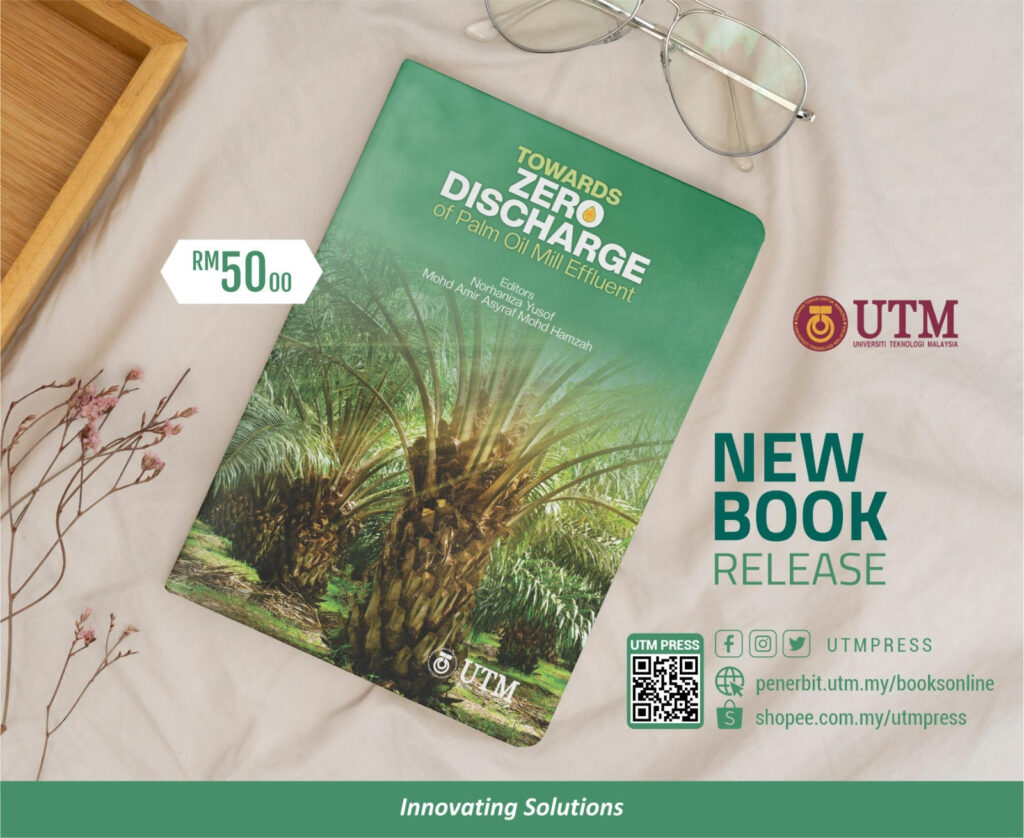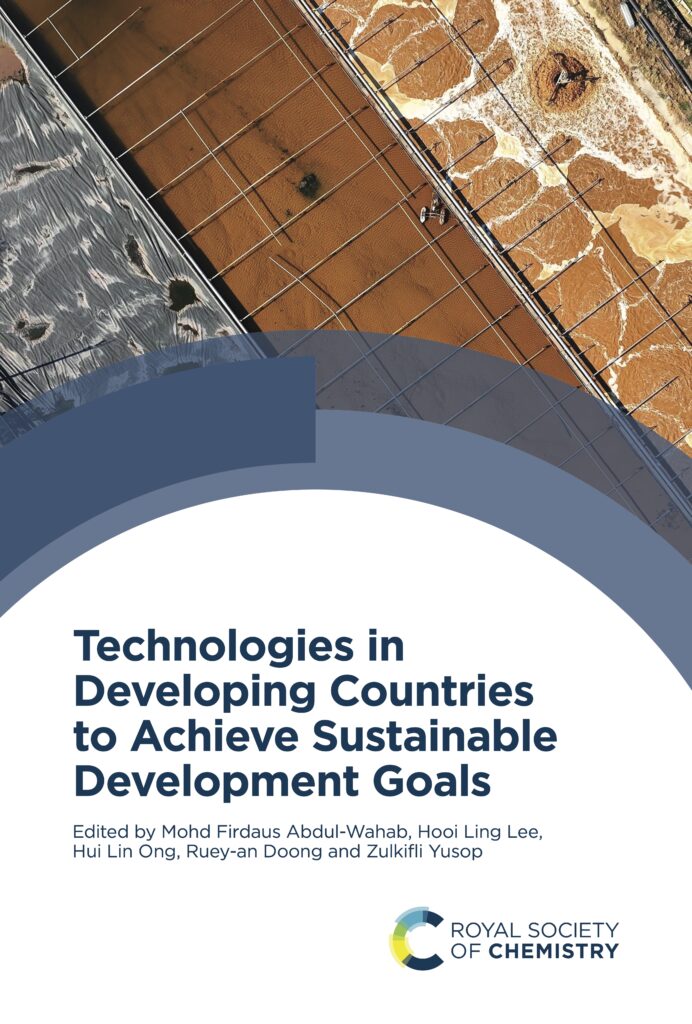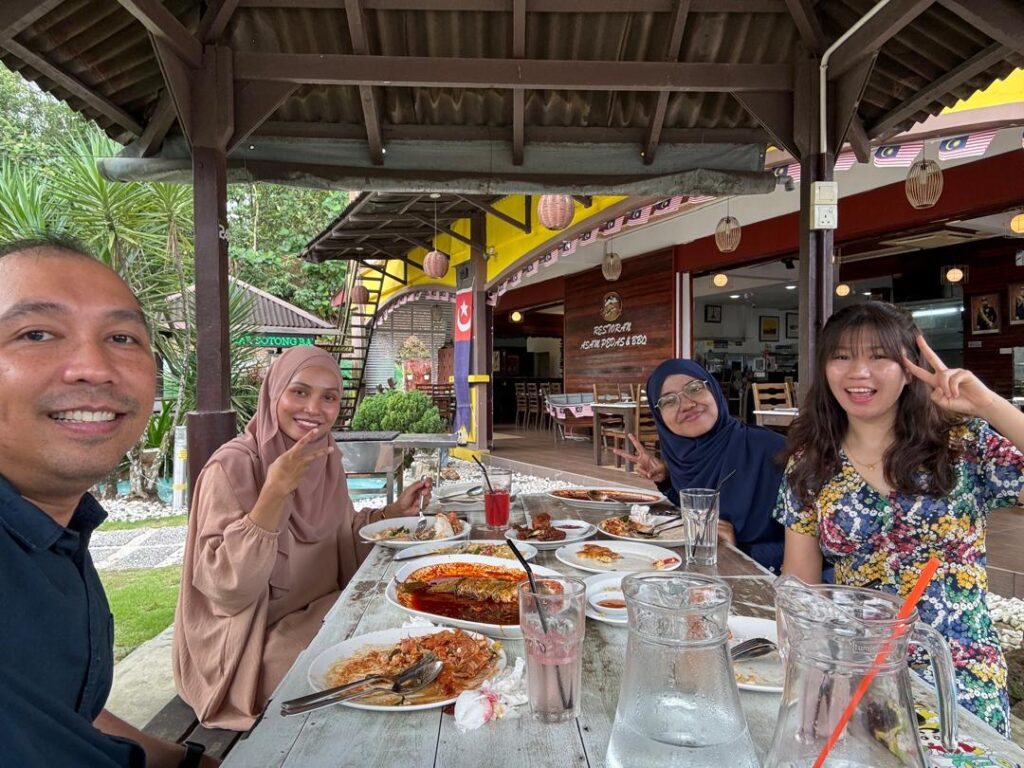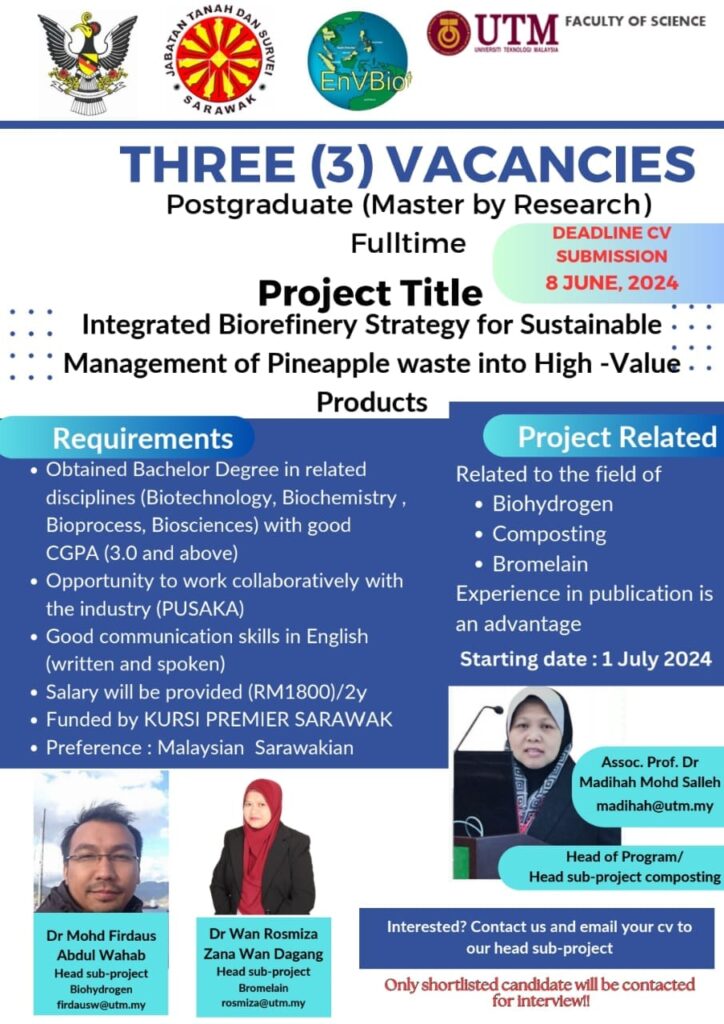Calling all UTM Faculty of Science alumni, researchers, and collaborators working in Biosciences, Chemistry, Physics & Mathematical Sciences!
Reconnect, collaborate, and inspire at ICOWOBAS 2025. ICOWOBAS is the flagship conference of the Faculty of Science UTM.
When: 6 & 7 May 2025
Where: Le Grandeur Palm Resort, Senai, Johor Bahru
Theme: “Innovative Science for a Smarter & Sustainable Future”
Why Attend?
- Reconnect with old friends and colleagues from UTM
- Build new connections with global researchers, experts, and collaborators
- Share your journey and expertise while learning from others
- Explore opportunities for groundbreaking partnerships and projects
- Relive the UTM spirit and create new memories together
Hear from our distinguished keynote speakers: - Datuk Prof. Ulung Dr. Harith Ahmad (Universiti Malaya)
- Prof. Sultan T. Abu-Orabi (Tishk International University)
- Dr. Iqbal Shamsudheen (PETCO Trading Labuan Company Ltd.)
- Prof. Dr. Ni’Matuzahroh (Universitas Airlangga)
Key Dates:
1 March 2025: Early Bird Deadline
4 April 2025: Abstract Submission Deadline
Special Rates:
- Oral Presenter: MYR 1,100 (Early Bird)
- Poster Presenter (Student): MYR 600 (Early Bird)
- Attendee: MYR 500 (Early Bird)
Register Now: science.utm.my/icowobas
Don’t miss this chance to:
- Reconnect with the UTM family
- Collaborate with researchers and experts
- Celebrate the legacy and spirit of UTM
See you there!
More Info: linktr.ee/icowobas2025
